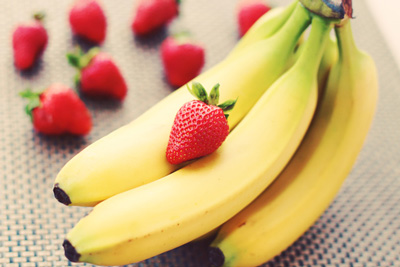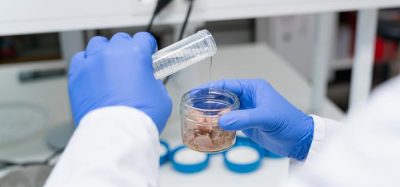Ultra-thin silk coating extends the life of fruits
- Like
- Digg
- Del
- Tumblr
- VKontakte
- Buffer
- Love This
- Odnoklassniki
- Meneame
- Blogger
- Amazon
- Yahoo Mail
- Gmail
- AOL
- Newsvine
- HackerNews
- Evernote
- MySpace
- Mail.ru
- Viadeo
- Line
- Comments
- Yummly
- SMS
- Viber
- Telegram
- Subscribe
- Skype
- Facebook Messenger
- Kakao
- LiveJournal
- Yammer
- Edgar
- Fintel
- Mix
- Instapaper
- Copy Link
Posted: 6 May 2016 | Victoria White, Digital Content Producer | 2 comments
Engineers have demonstrated that fruits can stay fresh for more than a week without refrigeration when coated in an odourless, biocompatible silk solution…


Tufts University biomedical engineers have demonstrated that fruits can stay fresh for more than a week without refrigeration if they are coated in an odourless, biocompatible silk solution.


The approach is a promising alternative for preservation of delicate foods using a naturally derived material and a water-based manufacturing process.
Silk’s unique crystalline structure makes it one of nature’s toughest materials. Fibroin, an insoluble protein found in silk, has a remarkable ability to stabilise and protect other materials while being fully biocompatible and biodegradable.
For the study, researchers dipped freshly picked strawberries in a solution of 1 percent silk fibroin protein; the coating process was repeated up to four times. The silk fibroin-coated fruits were then treated for varying amounts of time with water vapour under vacuum (water annealed) to create varying percentages of crystalline beta-sheets in the coating. The longer the exposure, the higher the percentage of beta-sheets and the more robust the fibroin coating. The coating was 27 to 35 microns thick.
The strawberries were then stored at room temperature. Uncoated berries were compared over time with berries dipped in varying numbers of coats of silk that had been annealed for different periods of time. At seven days, the berries coated with the higher beta-sheet silk were still juicy and firm while the uncoated berries were dehydrated and discoloured.
The silk coating slowed fruit respiration
Tests showed that the silk coating prolonged the freshness of the fruits by slowing fruit respiration, extending fruit firmness and preventing decay.
“The beta-sheet content of the edible silk fibroin coatings made the strawberries less permeable to carbon dioxide and oxygen. We saw a statistically significant delay in the decay of the fruit,” said Fiorenzo G. Omenetto, Ph.D.
Similar experiments were performed on bananas, which, unlike strawberries, are able to ripen after they are harvested. The silk coating decreased the bananas’ ripening rate compared with uncoated controls and added firmness to the fruit by preventing softening of the peel.
The thin, odourless silk coating did not affect fruit texture. Taste was not studied.








Maybe NOT, this technology will help us to control the respiration of fruits as well as reduced the transpiration rate to control the dehydration of fruits. So, no way to use it on a paper substrate.
Could this be applied to a paper substrate which would have direct food contact? Such as boxes for pizza or doughnuts etc.